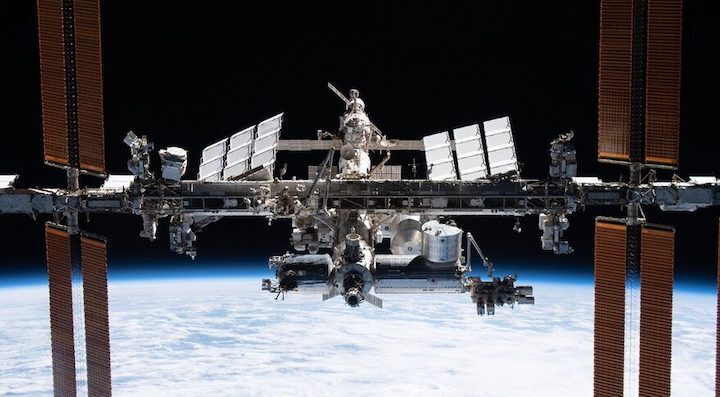2.03.2022

WASHINGTON — NASA said that operations of the International Space Station remain normal despite the growing rift between Russia and the West in response to Russia’s invasion of Ukraine.
At a Feb. 28 briefing to discuss the upcoming Axiom Space Ax-1 commercial mission to the ISS, Kathy Lueders, NASA associate administrator for space operations, said ISS operations were unchanged despite the Russian invasion of Ukraine that prompted sanctions and related measures by the United States, Europe and others.
“Right now, operations are nominal. Obviously, we’re continuing to monitor the situation, but our control centers are operating nominally together. We’ve gotten the support we’ve needed,” she said.
After the first set of post-invasion sanctions Feb. 24, NASA said that the restrictions did not apply to civil space cooperation with Russia on the ISS. “No changes are planned to the agency’s support for ongoing in orbit and ground station operations,” the agency said. Russian officials have avoided the ISS in its response to those sanctions, instead suspending launches of Soyuz rockets from French Guiana.
She reiterated that later in the call. “We are not getting any indication, at a working level, that our counterparts are not committed to ongoing operation of the International Space Station,” she said. “We, as a team, are operating just as we were operating three weeks ago.”
That included plans to have NASA astronaut Mark Vande Hei return on a Soyuz in late March. He launched to the station nearly a year ago and is scheduled to return on the Soyuz MS-19 spacecraft currently docked to the station, along with two Russian cosmonauts, March 30. Lueders said there were no plans to have Vande Hei come home on the Ax-1 mission, which would require Axiom to bump one of its customers on the four-person Crew Dragon spacecraft to free up a seat for the astronaut.
“That said, we always look for how to get more operational flexibility” for the station, she added. “Our cargo providers are looking at how to add different capabilities,” such as a test of reboosting the station by a Northrop Grumman Cygnus cargo spacecraft that arrived at the station Feb. 21.
“Currently, there is no plan — it would be very difficult — for us to be operating on our own,” she said. “The ISS is an international partnership, which is what makes it such an amazing program.”
The geopolitical situation is also not affecting the Ax-1 mission itself, which will send four people to the station on a Crew Dragon spacecraft scheduled to launch March 30. The spacecraft will dock with the station March 31 and its four-person crew will remain there until April 9. The mission will be commanded by Axiom Space employee and former NASA astronaut Michael López-Alegría with three customers: Larry Connor, Mark Pathy and Eytan Stibbe.
Preparations of the Crew Dragon spacecraft Endeavour, which previously flew the Demo-2 and Crew-2 commercial crew missions, are on schedule for Ax-1, said Benji Reed, senior director of human spaceflight programs at SpaceX. A new Crew Dragon is being readied in parallel for NASA’s Crew-4 mission, scheduled to launch in mid-April.
Reed said there should be no problem carrying out the back-to-back missions. “There is margin in both of those schedules,” he said, allowing Ax-1 to be delayed up to a few days while keeping Crew-4 on schedule.
The Ax-1 crew is in final preparations as well, said López-Alegría, with some final refresher training at both the Johnson Space Center and SpaceX’s Hawthorne, California, headquarters. The crew will enter prelaunch quarantine in about a week and a half. “We are ready to fly,” he said.
He added he was impressed with his crew and their commitment to the mission. All three are planning to conduct research and outreach projects while on the station. “They’re busy people and they’ve taken a lot of time out of their lives to focus on this,” he said. “I think there’s an important role for space tourism but it’s not what Axiom is about.”
Mike Suffredini, president and chief executive of Axiom Space, also downplayed the space tourism angle. “The crew’s not just going to place their nose on the window. They really are going up there to do meaningful research and make a difference, each in their own way.”
Quelle: SN

